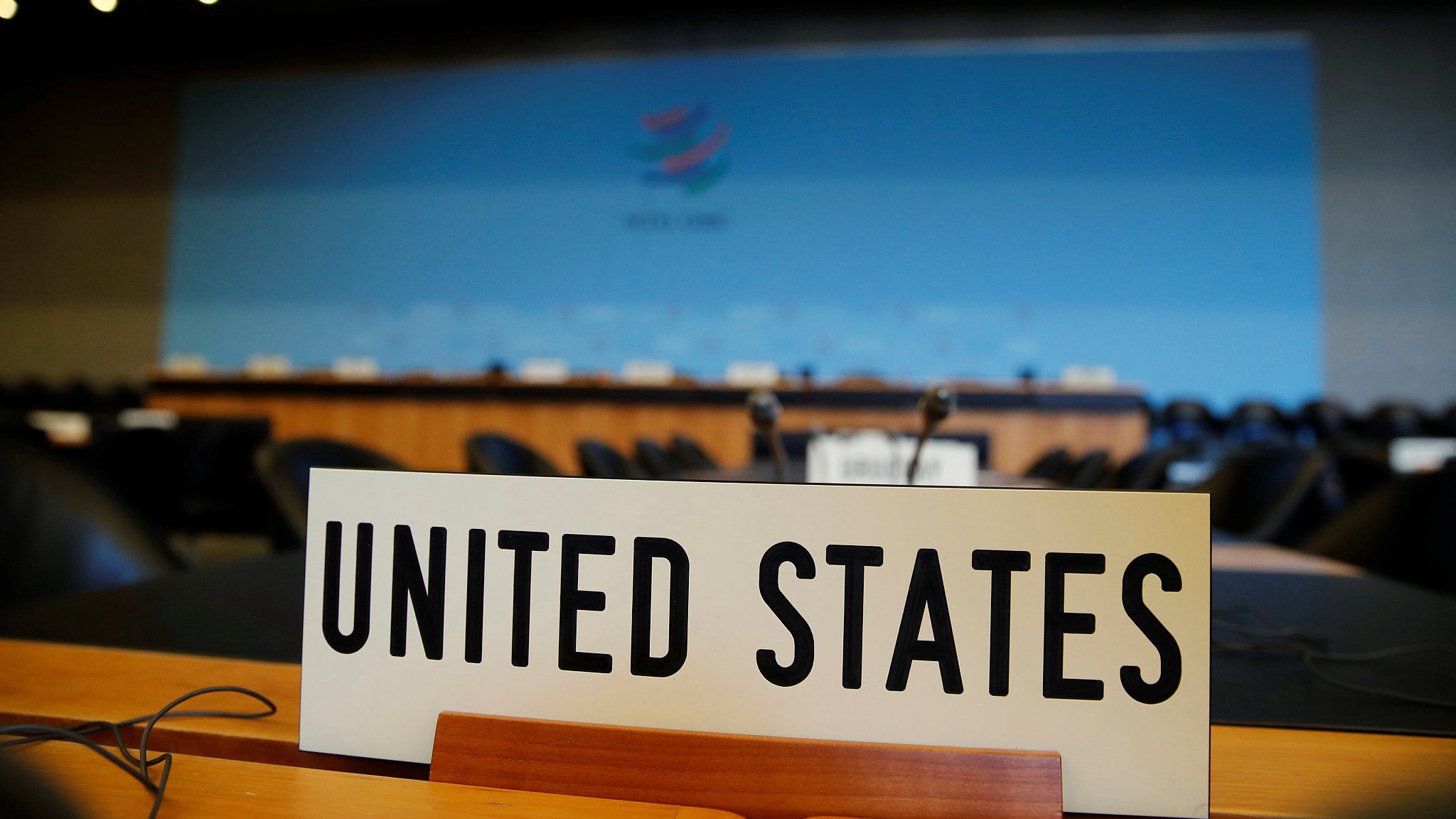
Opinions
23:04, 31-Oct-2018
Opinion: US grilled in the WTO for its trade behaviors
Updated
22:27, 03-Nov-2018
Kong Qingjiang

Editor's note: Kong Qingjiang is the dean of the School of International Law at the China University of Political Science and Law. The article reflects the author's opinions, and not necessarily the views of CGTN.
The US was grilled as the WTO's Dispute Settlement Body (DSB) examined the request of its trade partners for the establishment of a panel to review its trade policies and measures. The regular meeting of the DSB attracted worldwide attention, at least for two reasons.
First, earlier in March 2018, the US began to impose punitive tariffs (ranging from 10 percent to 25 percent) over steel and aluminum imports from nearly all of its major trade partners on the national security ground.
The WTO allows any member to take remedial measures against imports when the national security of the member is endangered as a result of imports or when the surge of the imports from another member results in serious injury to the related domestic industries.
However, strict conditions are to be met for the invocation of such clauses. Moreover, before the former member can take such actions, the existence of such conditions must be acknowledged by the DSB through complicated procedures, and opportunity shall be given to the latter that has endangered the national security of the former member to correct the non-compliance.

The World Trade Organization (WTO) headquarters in Geneva, Switzerland, July 26, 2018./ VCG Photo
The World Trade Organization (WTO) headquarters in Geneva, Switzerland, July 26, 2018./ VCG Photo
The US was accused by many WTO members of imposing high tariffs by invoking the national security exception, regardless of the conditions outlined in the WTO agreement. This unilateral measure, which amounted to trade hegemony per se, was in the eyes of some members a violation of the WTO rules and therefore jeopardized the multilateral trading system.
Naturally, it encountered fierce oppositions by Canada, China, the EU, Mexico, Norway, Russia, Turkey, among others, from the moment it was announced. They soon brought joint or separate litigations against the US.
After the ensuing consultations failed to reach any consensus, they requested the DSB to establish a panel to screen the US trade behaviors. They set fire again on the US as the DSB was convening to consider the request.
Second, the US had been seen as a vocal critic of other countries in the WTO and beyond. Albeit, a regular DSB meeting, which exposed to the scrutiny of the international trade community the trading behavior of a member that used to find fault with others, became a focal point.

The US national flag./ VCG Photo
The US national flag./ VCG Photo
Unfortunately, the US seemed to be untouched. In addition to defending its trade measures regarding the unilateral imposition of punitive tariffs against steel and aluminum imports, it took to strike back against its major foe in trade matters.
It conveniently chose China as a target for slapping the “incompetence” of the WTO to address China's so-called unfair trade practice, among others.
It must be pointed out that according to the WTO's dispute settlement rules and procedures, the requested panel will be established despite the opposition of the US. At that time and thereafter, it will gradually become clear whether the US behaviors would sustain the scrutiny of the Panel.
As known to all, the US helped shape the Dispute Settlement Mechanism (DSM) of the WTO when the world trading system as a whole was designed. It could have been a surprise to the framers of the DSM if they had been able to predict the US trade measure would become such a target.
(If you want to contribute and have specific expertise, please contact us at opinions@cgtn.com.)

SITEMAP
Copyright © 2018 CGTN. Beijing ICP prepared NO.16065310-3
Copyright © 2018 CGTN. Beijing ICP prepared NO.16065310-3